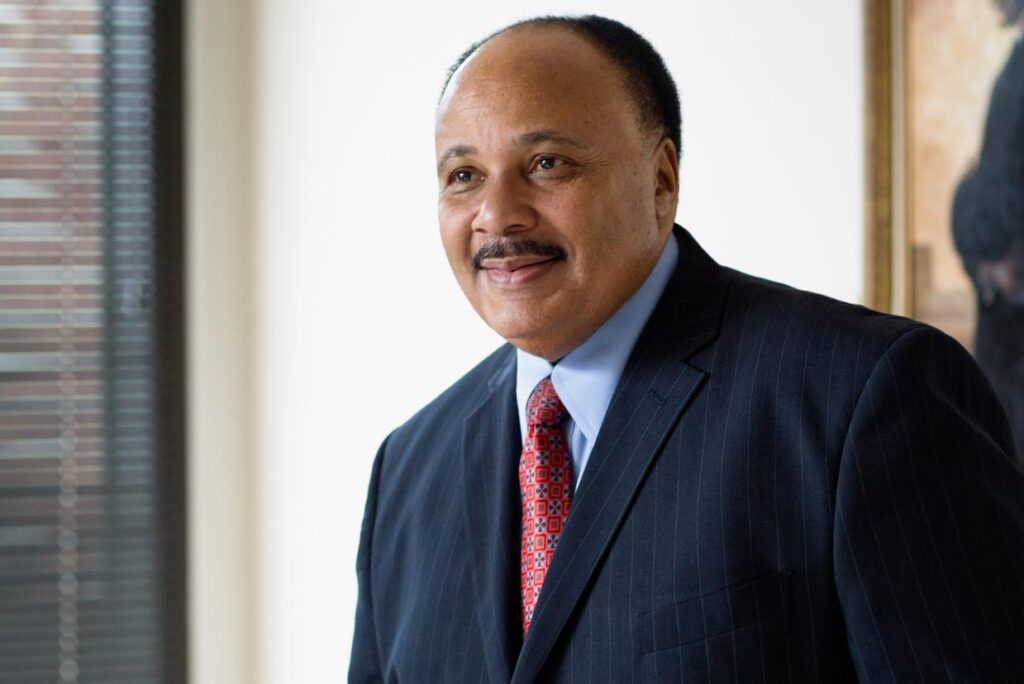
Dartmouth styles itself as a college in the woods, far from the shining lights of the coastal cities, a pillar of academia in the forests of New Hampshire. While our isolation has its benefits it also has its downsides. Namely, we often fail to attract speakers with the same notability as that community college in Cambridge or the Bushes’ prep school in New Haven. However, last week that changed, as Hanover was graced with the presence of Martin Luther King-The Third.
The son of the revered Reverend Doctor Martin Luther King Junior, Martin Luther King III has worked to continue his father’s mission. After attending Morehouse College where his father also went, King embarked on a life of activism and protest. He was first arrested protesting Apartheid outside the South African Embassy in the US. He departed from his father by becoming directly involved in politics, running for and serving as the Chairman of the Fulton County Commission. King worked with the Obama administration, praising former President Obama. While he has stepped back from politics in recent years, he continues to give speeches, particularly around Martin Luther King Day, and it was one such speech that brought him to the Hop Center on Dartmouth’s campus.
While this writer was unable to secure a ticket in time, he was able to partake in the great trend of the past two years and watch the speech on Zoom. The event began with an introduction by President Philip Hanlon, who welcomed King to the College and expounded upon Dartmouth’s many contributions to civil rights.
King himself covered topics from gun control to racial justice to the fundamentals of morality. Taking after his father, King emphasized the principle of non-violence. Through nonviolent action, he said, protests can bring about reform and change that would correct the problems which still exist in American society. In King’s mind, those problems range from persistent structural racism to racial and non-racial violence to a general lack of kindness between people. King, reading from a prepared speech, jumped from topic to topic, switching between abstract pontifications to concrete policy suggestions. For example, King moved from a discussion about general violence to advocating an assault weapons ban. Arguing that “I’m not totally against owning a gun, but who needs to own an assault weapon?” Fundamentally, King argued for a nonviolent society in which all problems are solved through discussion and the democratic process. He spent a short amount of time on Ukraine, acknowledging that we “need to do something” to help the country but not offering any specifics on what exactly to do. Personally, I would like to know how precisely King would propose helping the country without engaging in or facilitating violence. King also focused his ire on the rich. Rather than idolize the rich for their hundreds of billions of dollars, we should instead idolize those who help others out of kindness. King decried the American tendency to idolize greatness and material success. Rather than reach for the stars, we should focus on doing “our calling” well. He quoted his father, who said that if you sweep streets you should be the best street sweeper who ever lived. Of course, if everyone who started out as a street sweeper had kept sweeping streets, we would likely have far fewer billionaires. King ended his talk with a simple conclusion, that we all need to live and let live.
King’s speech was a clear, if not concise, outline of the essential principles of the Democratic Party’s stance on a range of social and cultural issues. He covered the hated one percent, the evils of intolerance (except for the intolerant), the need for firearms regulation, and the calls for nonviolence and acceptance that so many of his colleagues repeat.

Be the first to comment on "MLK III Goes to Dartmouth"